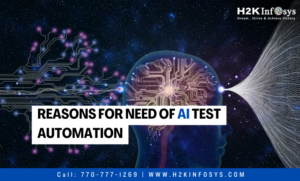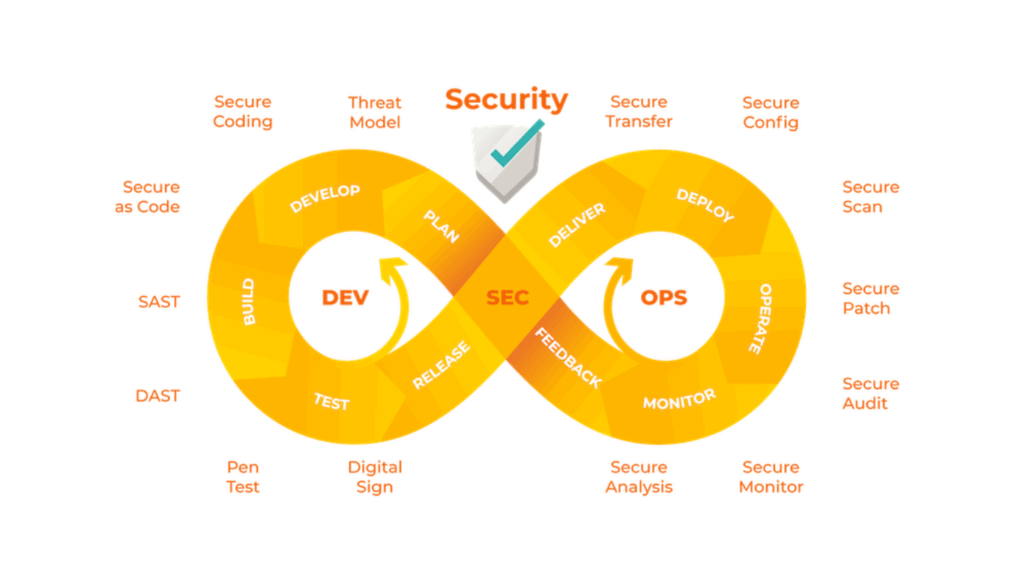Every mouse click, swipe, tap, and view in the modern world is a potential commercial decision. Everything is about data. The main issue, though, is controlling the rate and volume of data generation Artificial Intelligence .
The rate of data generation has been accelerating, and this has caused a commensurate evolution in data management. Simple relational databases and ETL were the starting point, but big data and unstructured data later emerged, opening the door for automated data pipelines and data lakes. However, this onslaught of information seems to have no end. Modern data is difficult for traditional technology to handle since it is complicated, extremely unstructured, and comes from many different sources. Thank goodness, AI is here to help us with our data management problems.
The term “AI” has been popular for some time. Technology is quickly influencing every aspect of our lives, particularly since the development of generative AI. Therefore, it only makes it logical to use it for data management as well. Check out the online Artificial Intelligence training to learn more.
How, though, is AI changing data management? We examine the effects of artificial intelligence on data extraction, mapping, quality, and analysis in this article.
The Amalgamation of Artificial Intelligence and Data Management
AI adoption was sped up in 2023 with the invention of generative AI. One-third of all respondents claimed that generative AI is being employed in at least one business function, according to the most recent McKinsey poll. 40% of the corporations reported using AI, and their businesses intend to increase their AI spending.
It’s critical to recognize that data requirements have changed as well when discussing the deployment of AI in data management. The sharing of data is increasingly becoming a normal occurrence. Data decentralisation is a goal of many businesses as they want to sell it as a service to both internal and external clients. Additionally, the market requires solutions that offer automated and enhanced data integration due to the rising demand for data fabric.
The ability of AI to adapt to these shifting data requirements is very strong. AI has the capacity to abstract the intricacies of the data management process and hence speed it up from data ingestion to analysis.
The best illustration of how applying AI to data management may boost profits is Amazon. The massive retailer uses AI and predictive analytics to foretell what customers will need before they do by taking into account data factors including past purchasing history, time spent on the website, wish lists, and geography.
What occurs therefore behind the scenes? How does AI function? Data cleansing, categorization, grouping, and anomaly detection are examples of routine processes that can be accelerated by AI technology such as machine learning algorithms. In addition, deep learning and natural language processing make text analysis, sentiment analysis, image analysis, and a host of other tasks simpler.
Let’s examine the impact of AI on each stage of data management.
- AI and Data Extraction
Data extraction comes first in every cycle of data management. It has become difficult for standard technologies to handle unstructured data sources like Text, PDFs, pictures, and others. The tools were initially template-based, allowing data to be automatically extracted from documents using the same template. AI, however, has done away with the requirement for template homogeneity. Natural language processing is used by AI-powered data extraction systems to comprehend the fields that must be extracted by a business. If a company wishes to extract customer information from invoices or purchase orders, for instance, it only needs to provide the fields; the tool will extract the information regardless of the format.
- AI and Data Mapping
Data is mapped from the source to the intended destination after it has been extracted. This was once a manual procedure that required IT specialists to write code. Code-free data mapping technologies soon made their appearance, enabling data professionals to drag and drop their way through data visualisation and mapping. Data mapping has fundamentally changed thanks to AI.
The automatic discovery of data sources, properties, and relationships is now possible thanks to artificial intelligence. Machine learning algorithms examine the data already in existence to find patterns and correlations, which saves time and effort. Additionally, AI makes schema mapping simpler by using algorithms that compare dissimilar schemas for commonalities using pattern recognition and semantic analysis.
- AI and Data Quality
Businesses have gotten quite good at producing large amounts of data, but they still have problems with data quality. IBM estimates that poor data quality costs the US economy $3.1 trillion annually, proving that the development of data management tools hasn’t really made much of a difference. AI, though, may turn out to be unique.
Datasets can be scanned by AI algorithms for mistakes, anomalies, and inconsistencies, which can then be fixed right away. The ability of AI systems to manage missing data is one of its strongest features. Without sacrificing precision, AI systems may find missing values in the data and fill them with estimates.
- AI and Data Analysis
The final step in any data management process, data analysis, may benefit most from artificial intelligence. Lightweight NLP integrations in data analytics have increased since the introduction of GPT. Textual data from sources such as social media, consumer reviews, and documents is analysed by NLP algorithms. AI can also use clustering algorithms to bring together related data.
Regression analysis and decision trees are key methods in data analysis. Even in multidimensional datasets, AI-powered machine learning models can quickly build complicated decision trees.
Conclusion
There is no denying AI’s importance in data management. It is not merely a fancy method of analysis; rather, it is what is required at this time. Today’s businesses want real-time insights, which AI can provide. AI will continue to play a bigger role as time goes on.
Edge AI, which does data analysis and computation at the location of data collecting, could also advance. Many manual processes will be eliminated by this technology, which will also simplify data management find out more about what AI can do, check out the Artificial Intelligence online course.





























